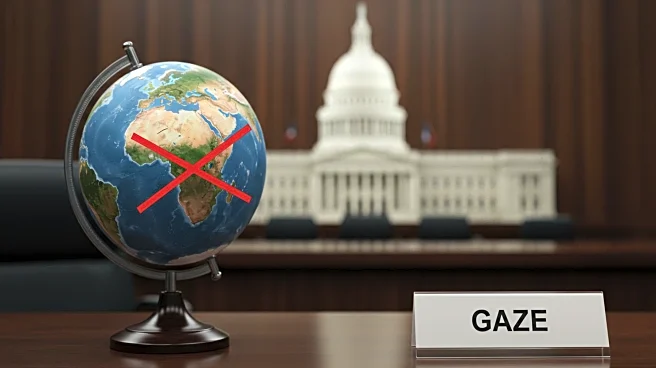What's Happening?
The Trump administration has temporarily suspended the issuance of visitor visas for individuals from Gaza, following social media posts by conservative activist Laura Loomer. Loomer questioned the arrival of children from Gaza in the U.S. for medical treatment, prompting the State Department to review the visa process. Secretary of State Marco Rubio stated that the decision was influenced by inquiries from multiple congressional offices, which raised concerns about the organizations involved in obtaining these visas and their alleged links to terrorist groups like Hamas. The State Department is now reevaluating the vetting process for these visas, which were primarily issued for medical-humanitarian purposes.
Why It's Important?
The suspension of Gaza visas has significant implications for humanitarian efforts and U.S. foreign policy. Organizations like HEAL Palestine, which facilitate medical treatment for severely injured children from Gaza, may face challenges in continuing their work. The decision also highlights the ongoing tension between national security concerns and humanitarian needs. The halt in visas could affect diplomatic relations and humanitarian aid efforts, as the World Health Organization has emphasized the urgent need for medical evacuations from Gaza due to the destruction of its health system.
What's Next?
The State Department's review of the visa process may lead to changes in how humanitarian visas are issued, potentially affecting future medical evacuations from Gaza. Stakeholders, including humanitarian organizations and political leaders, may engage in discussions to balance security concerns with humanitarian needs. The outcome of this review could influence U.S. policy on international humanitarian aid and its approach to conflict zones.
Beyond the Headlines
The decision to halt visas raises ethical questions about the balance between national security and humanitarian obligations. It also underscores the complexities of U.S. foreign policy in conflict regions, where political considerations can impact humanitarian efforts. The situation may prompt broader discussions on the role of social media in influencing government decisions and the responsibilities of activists in shaping public policy.










